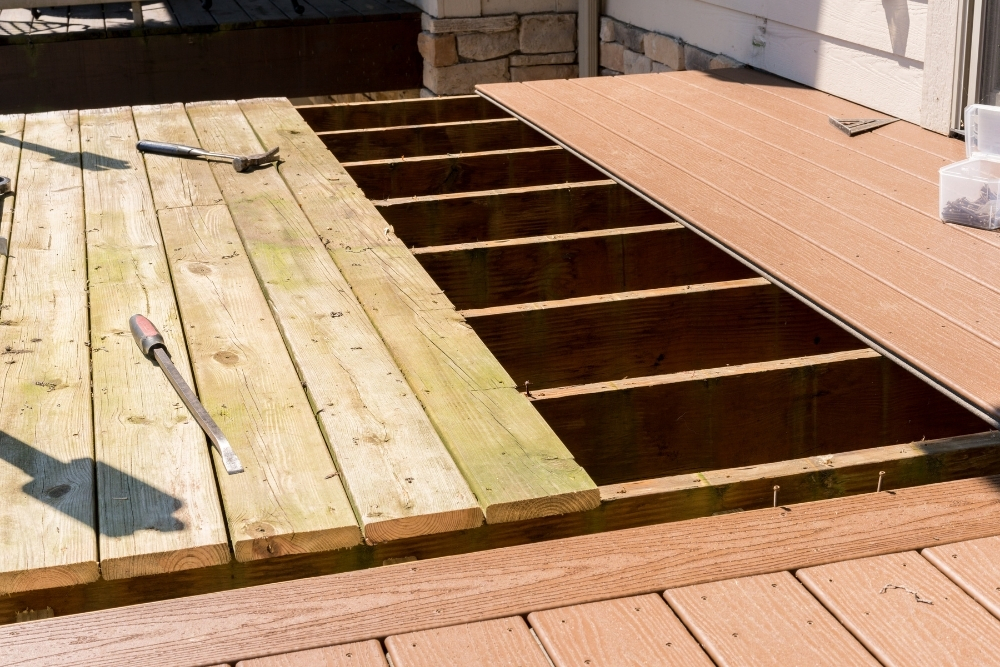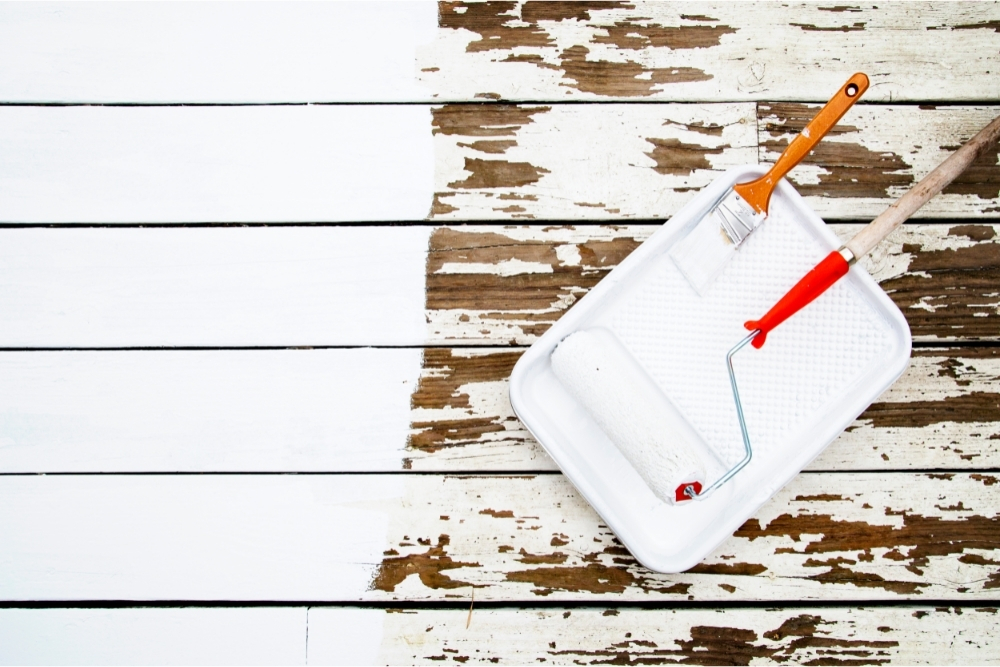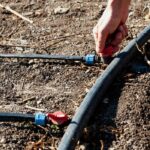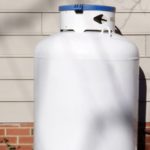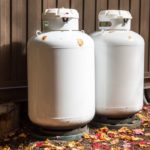If you have a propane tank, you may wonder about the possibility of it leaking. Whether or not your propane tank is new or if you carry out periodic checks and routine maintenance on your propane system, there is still a chance of your tank leaking. So, do propane tanks leak over time?
There is a possibility for your propane tank to leak over time. There is a higher possibility of a leak happening if a propane tank’s gas line or propane appliance valve remains open after you’re through using the tank.
To help you detect as soon as possible if there is a leak, propane manufacturers add a rotten egg smell or some other unpleasant smell to propane. If you smell this and detect or suspect a gas leak, leave the area immediately. Then, call your propane supplier and make a report. To ensure that you and your family are safe from propane leak hazards, read on for more information.
How to Tell if Your Propane Tank is Leaking
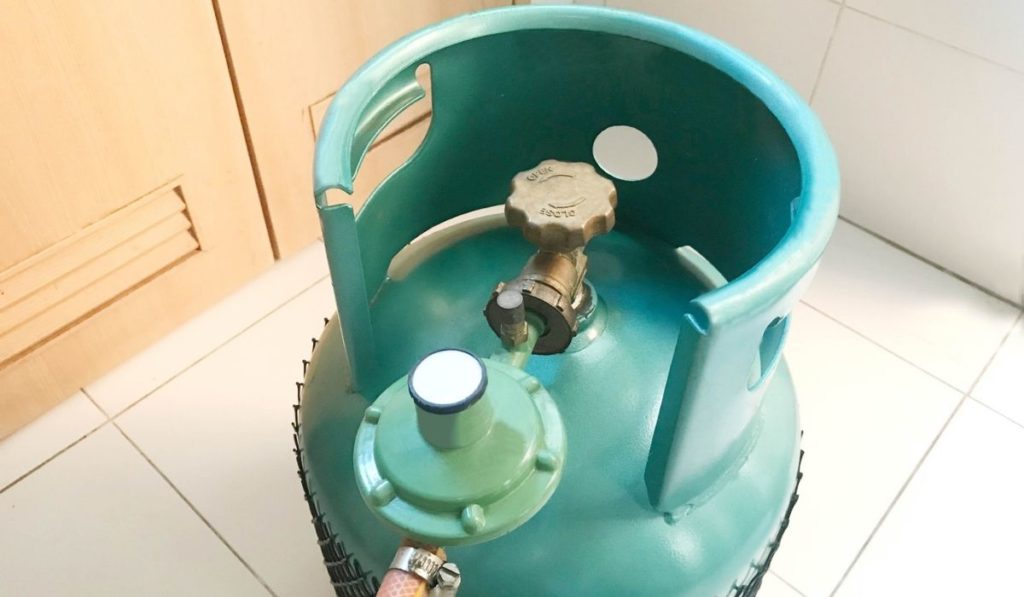
Just in case you have never detected a gas leak before, there are a couple of things to look for when you suspect leakage from your propane tank. Look out for a hissing sound which would be followed up by an unpleasant or unusual smell.
Also, you should carry out a soapy water test on all fittings, check your pilot lights, and of course, use a manual propane detector can help if you have access to one (and they’re surprisingly cheap). One interesting thing to watch out for is insects, which may be attracted to the smell of leaking propane.
Hissing Sound
Look out for a hissing sound. The hissing sound, in most cases, is one of the first signs that there is a leak, especially if you’re not far away from the tank. However, it could mean that the leak is sizeable. So, the advice would be that you be more vigilant and act quicker.
Rotten Egg Smell
Another common way to detect a leak is through smell. The rotten egg smell is the most common smell and what you should look out for, but you could also smell skunk spray. Naturally, propane is odorless, so the act of manufacturers giving it a smell is so it can be easily detected if there is a leak as a safety measure.
There are cases where people fail to smell propane. This could be due to various reasons including medical condition, age, effects of medication, drugs, tobacco, or even alcohol. Even though it rarely happens, propane can lose its smell due to rust in the propane cylinder or tank, the presence of air, or water.
Propane can leak through the soil. This is another case that can make it lose its odor. Regardless of how faint the smell is, the first thing you should do is call your supplier as soon as possible. They will have their service agents come and have a look at it.
Issues with Your Pilot Light
Although propane is invisible, there are some other likely signs you can see that you should not neglect. For example, frequently having issues with keeping your pilot light gas-powered is enough reason to suspect something unusual going on.
Soapy Water Test
Another visible means of detecting a possible leak is via the soapy water test. To do this, get a spray bottle and create a water and soap solution. Spray the solution onto the hose connections to your tank. If you see bubbles, then there may be a leak. Any simple bottles you either buy (this example on Amazon) or have laying around – the soap is necessary to form bubbles in the water that you can see, to spot the leak.
There’s also a general rule about the soapy water test. It states that the smaller the leak, the smaller the bubbles, and vice versa.
Presence of Insects
Propane emits a sulfur-like smell, and this smell usually attracts insects like bees and flies. Your propane tank could be leaking if you find swarms of insects hovering around it.
Propane Gas Detector
A very reasonable safety precaution you should consider is installing a propane gas detector in your home. This is particularly important since sometimes you may not see or smell any leak signs. But, propane gas detectors are built to sound an alarm as soon as they sense or detect propane.
If you’re worried about a leak in your home, a simple outlet-installed option like the Techamor Y302 Propane Alarm (on Amazon) can detect propane (among other things) and alert you. If you’re investigating a leak and need a mobile option, there are tools like the Techamor Y201 Portable Leak Sniffer (also on Amazon) that you can use.
What to Do if Your Propane Tank is Leaking
Whether you like it or not, a leaking propane tank means there’s a possible explosion waiting to happen. As soon as you suspect or detect a leak, you have to act as fast as possible to control the situation.
While a propane leak requires the attention of an expert, you can still do something. Below are some tips you can use to keep yourself and your family safe from propane leak hazards.
Observe/Check The Propane Tank For Leaks
You would most likely smell the unpleasant odor added by the manufacturer to the propane, and this is the easiest way to detect a leak. However, some people may not smell the odor as well as others, especially because of their age or medical condition. In rare cases, the added odor may have disappeared due to the rust in the tank.
It’s a simple task to check for a propane tank leak. Just carry out the soapy water test by mixing soap and water and spraying it on the tank’s cylinder valve and regular outlet connect. You could also make use of a special leak detector. If there is a leak, you will see bubbles.
Reduce Risk for Fire or Explosion
There is always a likelihood of explosion that comes with any gas leak. This is why you must take safety measures as quickly as possible. If there is anyone around after you confirm or suspect a leak, evacuate them from the area.
There are other things you can do to prevent the situation from becoming worse. These include putting away your phone and turning off light switches and household appliances.
Turn Off Main Gas Supply Valve On Tank
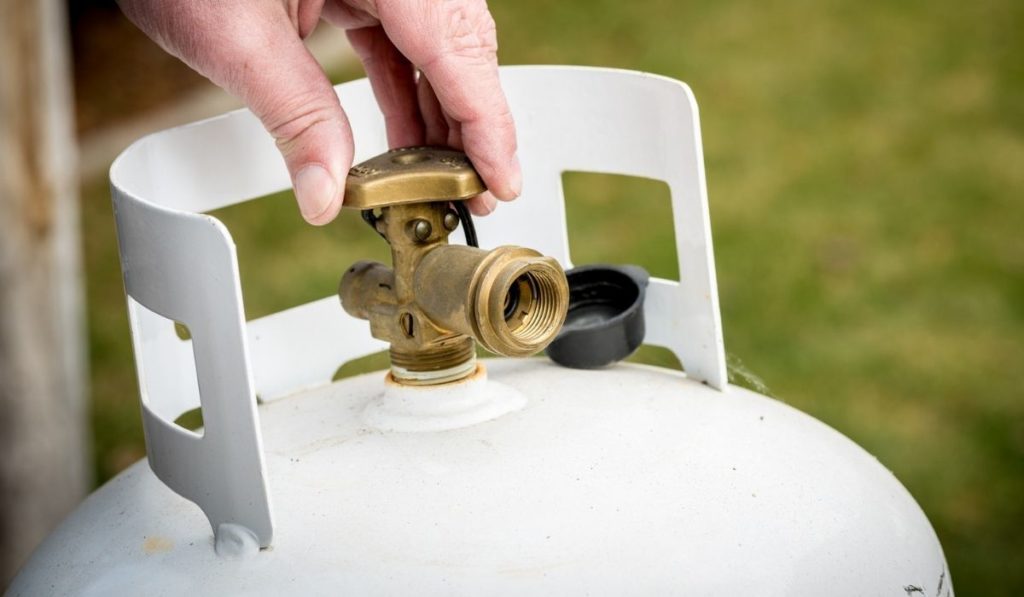
If you can, try to turn your main gas supply valve in the clockwise direction. This will help stop more gas leakage into your home. The next thing you should do is to get to a safe area and call your propane supplier.
Note: You should only use your phone after getting to a safe area.
Open Windows Before Leaving The Building or Area
Creating possible exits for the gas to leave your house is another smart move. So you should try to open as many windows in your home as possible as you leave.
This will reduce the likelihood of an explosion because the leaked gas will slowly find its way out. Inhaling propane gas into your system poses health risks, so only do this if you can quickly. Also, instead of stopping to take any possessions, find a safe area right away.
Call 911
You should call 911 for emergency help. The other option is calling your propane supplier, but you should only do this when you’re sure that you and your family are in a safer place.
Maintain The Long Distance Until The Leak Stops
Keeping a safe distance from your house after the leak is not enough. You and your family should remain there until it has been confirmed that the leak has stopped. You should not give in to the thoughts of going back to your house to get your belongings as inhaling propane gas is equally deadly.
Have a Propane Tank Inspection Schedule
You should have a propane gas inspection schedule. You should even create the schedule before making use of any propane household appliances. This will help stop and fix any leaks and prevent a recurring situation.
Propane Tank Safety Tips
One of the best ways to reduce the possibility of accidents is ensuring that your propane tanks are inspected properly. Below are some tips you should have in mind if you own a propane tank:
- Allow ventilation in your car if you’re driving your propane tank home and ensure that the cylinder valves are completely closed.
- Ensure that your propane tanks are far from heat sources. Keeping them indoors is also not a good idea. Make sure the tank is in an upright position at all times.
- Keep your propane tanks far from areas with a temperature of more than 120 degrees Fahrenheit. Ensure that the tank is in a well-ventilated area.
- Also, carry out checks on the tank hose for leaks from time to time.
- Do not smoke near your propane tank.
- When not in use, the cylinder valve should be closed.

